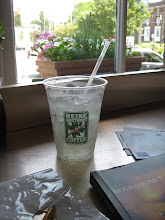on the subject of poets and their works
As promised,
I am going to include a bit of biographical data on the poets whose works you have to look into for homework; when analyzing the poems, you can or do not have to take into account the people these poets were when they wrote their segments: always remember that the life of the poet as a private (wo)man and the life of the poem as a shared piece are not one and the same. All are 20th century folk.
Here it goes:
1. Philip Larkin
- not the offspring of the morning bird. Educated at King Henry VIII School and St. John's College, Oxford, for many years worked as the librarian of the Hull University Library. Larking was a dominant figure in what later came to be known as 'the Movement' (a group of poets that included Kingsley Amis and Thom Gunn); their work is free from mystical and logical traits that the rest of modern poetry may suffer from. Larkin's poetry examines loneliness, age, death, but the many negatives in his poetry imply positives: even though the speaker tends to be out of reach, ironic, self-depricating agonizing man.
2. Dylan Thomas
A Swansea, Wales resident. Thomas was 'discovered' as a poet in 1933 through a poetry contest in a popular magazine at the time. His poems tend to possess a stange violence when it comes to their images, a sense of powerful obscurity. The main topic he was interested in: the unity of all life - the continuing process of life and death and new life that linked the generations to each other. He was a brilliant reader of his own poems, and many people who do not normally read poetry were drawn to hism by the magic of his own reading.
3. John Crowe Ransom
Never kidnapped anyone. Born in Tennessee, educated at both Vanderbilt and Oxford. Stayed at Vanderbilt to teach. While there, he took part in a group which met regularly to discuss philosophy and read their own poetry. Besides Ransom, other members include the now famous poetic names - Allen Tate, Robert Penn Warren, Donald Davidson. He believed that science and technology were forces of destruction, that had come from the North to dominate the South. Hence, he came up with an alternative system, based on southern values, in order to protect what he treasured the most (the South as a place of leisure and stability). The system was later called southern agrarianism, and the role of poetry was to provide men and women with an alternative source of knowledge, one that they could use to combat the evils of scientific intrusion.


2 Comments:
It talks most definately about death, but the aspect of not surrendering without a fight.
Monday, 14 February, 2005
The true Bart would be disappointed....
Thursday, 17 February, 2005
Post a Comment
<< Home